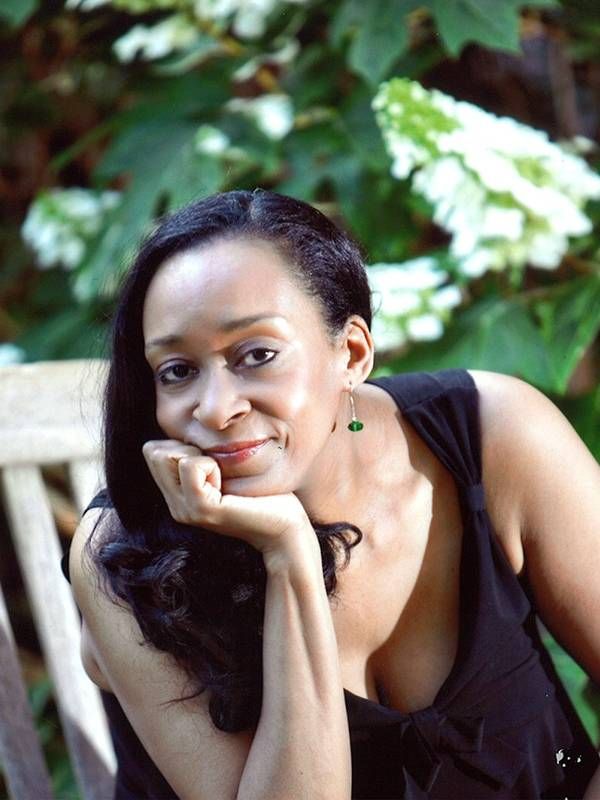Remembering My Days as An Idealistic High School Teacher
Catching up with some of my students has been gratifying, and shown me that my efforts paid off
When I was 21, I was one of those quintessential idealistic boomers, whose goal was to become a teacher in a New York City public high school. There were a slew of us who were out to change the world, make it more equitable and educate the youth of tomorrow.

In 1971, I started teaching English at Hillcrest High School, a new public school situated on a hill in the middle of Jamaica, Queens. The school's population of 3,200 consisted of one-third Black, one-third Latino and one-third white students.
The school also cut across economic lines because it drew students from poor and working-class South Jamaica, middle-class Briarwood, Kew Gardens and Flushing, and upper-crust Forest Hills Gardens. It was so multicultural that it felt like attending the United Nations General Assembly each day.
The goal of the teacher was to stretch the talents of every student, regardless of their reading level.
At Hillcrest High, we changed classes four times a year, not twice, and students elected their own courses. English classes were mixed by reading levels, which was termed heterogeneous grouping. In that way, students weren't labeled slow or remedial; there were no honor classes either. The goal of the teacher was to stretch the talents of every student, regardless of their reading level.
Hillcrest also offered special programs to further students' interests and career goals such as Pre-med, Nursing, International Studies and Theater.
There was a core of teachers, particularly in English and theater, who were on a mission to make sure every student, poor or rich, white, Black or Latino, had an opportunity to succeed and reach their potential.
For example, one of my colleagues, Peter Kaufman, developed the Mimestrals, a troupe of multicultural and talented mimes who performed at Hillcrest as well as community and senior centers. Kaufman, who became a New York City principal, has stayed in touch with numerous Mimestrals over many years.
Teaching Was a Challenging Job
I taught five classes of 30 to 34 students daily amounting to 150 to 170 students a day, plus official class to take attendance and spent my two free periods grading papers and reviewing my lesson plans. I taught American Literature, Shakespeare, Creative Writing, Introduction to Poetry and Reading, and developed courses such as Literature of Sports (a popular class with the athletes on the basketball and baseball teams) and Hesse, based on Hermann Hesse's novels. I taught for 12 years until 1982 and left to become a writer.

Most Friday late afternoons, I'd return home from a week of teaching, start reading The New Yorker and fall asleep on my couch. Spent, I had devoted all of my youthful energy to teaching and there was nothing left.
When some of my single friends were going bar-hopping, I'd be recuperating from a satisfying, but exhausting, week of teaching. There were no outings at Studio 54 disco for me; never had been, never had the time or interest. I felt as if I was on a mission and could harbor no distractions.
Michael Linsin, who has written several books on teaching including "Critical Thinking in the Classroom," says teachers in the 1970s and 1980s "had the freedom then to build relationships that current teachers don't have due to packed schedules and curriculum expectations."
He adds that the encouragement of a teacher resonates because "praise that is earned from someone respected and admired is a cherished gift former students' remember for a lifetime."
Connecting with Former Students
Now 45 to 50 years later, I've tracked down some of my former students because I wanted to assess the impact my teaching had on them. That is, if they could remember so many decades ago, I thought to myself.
I had some students who achieved notoriety, including Fran Drescher, star of the TV comedy series, "The Nanny;" Sherrilyn Ifill, the influential president of the NAACP Legal Education and Defense Fund; Eric Marcus, a groundbreaking author and founder of the Making Gay History podcast and the novelist Andrea Smith (more about her later).
When I met Drescher on the street in my neighborhood about 10 years ago, she remembered me vividly, and said, "You were like a college teacher." I kidded her that her ability to write a four-paragraph essay with a thesis statement clearly was critical to her acting success.
And Ifill once circulated an Instagram posting about my teaching her journalism class how to fold The New York Times on the subway, an invaluable skill for any New York City dweller back then.
Memories of A Teacher's Positive Influence
Marshall Kass is president of Romy Computer Services, based in Parkland, Fla., the town that suffered the Marjory Stoneman Douglas High School shootings in February 2018 when 17 people were killed by a lone shooter. Kass, 60, graduated from Hillcrest in 1979.

He wrote me a note in February 2018, saying, "I don't think you know how influential you were in my life. You believed in me when nobody else did. I felt as if you deserved the best of me and tried to deliver. If that isn't a positive influence, I don't know what is."
He noted that "You made me think when everyone else allowed me to flail and get lost. You gave me a sense of self that endures to this day."
Attending a multicultural high school, where Kass fit in with several groups, also enhanced his life. "I learned how to be street smart. I've always carried that with me. I've never had a problem acclimating because of that background," Kass said.
Kass remembered writing an essay in my Shakespeare course on the book "The Elizabethan World Picture." He noted that "in my memories of writing that paper for you, I can still smell the burning rubber that was my brain as I tried to do well by you."
After the Parkland shootings, Kass wrote several letters of protest to legislators about gun violence. He told me, "You assisted me in finding my voice and encouraging me to write." What higher compliment could a former high school English teacher receive than that?
Andrea Smith, now 62 and living in Decatur, Ga., graduated from Hillcrest in 1977. When she was in my Creative Writing class, she had never considered herself a writer. For one of the assignments, I asked the class to write a poem inspired by living in New York City.
I ended up reading three of the poems, including hers, titled "I'll Camouflage New York." It was about her changing New York and included lines such as "I'll stop strangers to meet, give Lady Liberty a seat, I'll camouflage New York." The class applauded her after I finished reading it.
My reading that poem made her feel important. "I felt heard," she told me. Smith, who was also an actress, went on to earn a book contract from Random House and is the author of "Friday Nights at Honeybees."
"You gave me a sense of self that endures to this day."
Smith was a member of the Mimestrals, which enhanced her confidence. Growing up in Bushwick, a mostly Black neighborhood in Brooklyn (she took Mandarin to be accepted to Hillcrest), she said attending a multicultural high school broadened her scope.
Another 1977 graduate, Michael Stock, 62, lives in Teaneck, N.J., and was a student in my American Literature and Shakespeare classes at Hillcrest. A former senior director at Standard & Poor's, a financial ratings firm, he is now compliance manager at a nonprofit that distributes money provided by the German government to Holocaust survivors.
What Stock recalls vividly were the essays he wrote in my English classes. "And the fact that you took the essay seriously and wrote lengthy comments about them, I think that's what helped develop my writing skills," he said.
When working at Standard & Poor's, he had to write lengthy documents for attorneys during the financial crisis of 2008. "All the attorneys said my writing was succinct, explicit and clear and praised my writing style," he said.
Attending a multicultural high school heightened Stock's ability to deal with a wide range of people. When he's been evaluated on performance reviews for communication skills with his colleagues, he has always scored high.
He attributed attending classes with a wide array of classmates at Hillcrest High as a contributing factor to encouraging those skills.
So what conclusion did I realize about my idealistic teaching days so many years ago? What did William Faulkner once say? "The past is never dead. It's not even past."
The impact that committed, zealous high school teachers exert on their students doesn't stop when they graduate. It lasts a lifetime. It becomes a legacy for those of us who designed lesson plans, came up with a thesis for each class, elicited answers and then stood back and let the students flourish.
Read More

